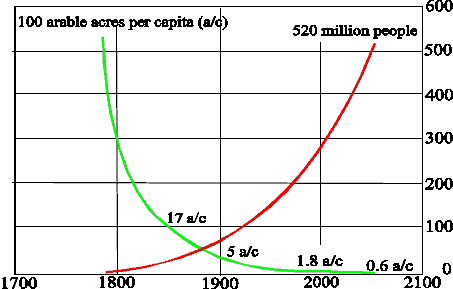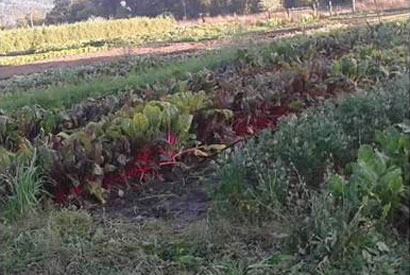E120, e145, e130,
Calendar – Click on Date for links entered on that Day
Archives
-
-
Recent Posts
- Nigerian community slowly disappearing under Atlantic Ocean due to coastal erosion June 23, 2024
- LIVE: Historic Demonstration for Nature Restoration | Extinction Rebellion & Over 300 Allies Unite! June 22, 2024
- How the Dutch solved an (almost) Impossible Problem with Sea-Level June 22, 2024
- Not-Normal Record-Setting Heat is Killing Many People: Could Chill Suits (Cooling Suits) Mitigate? June 21, 2024
- Arundhati Roy Faces Anti-Terror Prosecution in India as Modi Expands Crackdown on Critics June 21, 2024
- Bananas and Blood: Chiquita Ordered to Pay Colombian Families $38 Million for Backing Death Squads June 21, 2024
- Can we stop the sixth mass extinction? June 20, 2024
- Juneteenth Special: Historian Clint Smith on Reckoning with the History of Slavery Across America June 20, 2024
- Race to save fertile land as soil degradation threatens global food supply June 20, 2024
- What’s a heat dome? Here’s why so much of the US is broiling June 20, 2024
- Michael Mann on CNN with Jim Acosta Discussing Heat Wave Across US (JUNE 18 2024) June 20, 2024
- Progetto MUSAS – Archeologia Subacquea a Le Castella June 19, 2024
- Progetto MUSAS – Il Porto romano di Egnazia June 19, 2024
- EGNAZIA antica città messapica June 19, 2024
- Egnazia, Puglia, Italy June 19, 2024
- A Leading Expert on International Trade Talks About Climate Change June 18, 2024
- Why we’re still losing the fight against Methane June 17, 2024
- How the Rapidly Approaching AMOC Shutdown will Completely Change our Lives June 17, 2024
- Climate-change migrants: what can be done? June 16, 2024
- How did the Supreme Court get this out of control? | The Coffee Klatch with Robert Reich June 15, 2024
- Our Vanishing Underwater Forests June 15, 2024
- Climate & Environmental Justice at Harvard Climate Action Week June 15, 2024
- Senior WFP official warns of ‘catastrophe’ in southern Gaza as conflict continues June 15, 2024
- Brazil battles wildfires in the world’s largest tropical wetland | The World June 15, 2024
- Harvard Climate Action Week @ The Studio | Friday, June 14 June 14, 2024
- What to know about heat domes as East Coast braces for record highs June 14, 2024
- Already under state of emergency, Florida gets hit with more rain June 14, 2024
- Record rainfall in Florida as massive wildfire rages in Arizona June 14, 2024
- Coastal California on the front lines of climate change June 14, 2024
- Scientists found earth’s rotation is changing speed than usual June 14, 2024
- Humans have shifted Earth’s axis by pumping lots of groundwater: scientists June 14, 2024
- Understanding sea-level rise – Improving predictions through studying the shape of the seabed June 14, 2024
- Antarctic sea ice levels dive in ‘five-sigma event’, experts flag worsening consequences | ABC News June 14, 2024
- GRAIN | Genocide and food weaponisation in Palestine: global resistance as hope June 14, 2024
- Alito slams media criticism of Supreme Court in secretly recorded audio June 13, 2024
- ProPublica Reporter Defends Work After Samuel Alito Accuses Outlet of Politically Motivated Coverage June 13, 2024
- From Gaza to Sudan, Number of Global Armed Conflicts Reach New Post-WWII High June 13, 2024
- Athens Acropolis closes as earliest-ever heatwave sweeps Greece • FRANCE 24 English June 13, 2024
- Homo Ludens: A Study of the Play-Element in Culture: Johan Huizinga June 12, 2024
- ‘Stop Mad Men fuelling madness’ – The Ecologist June 9, 2024
- LIVE: Head of UN to speak in NYC on World Environment Day June 9, 2024
- UN chief calls for ban on fossil fuel adverts to save climate | BBC News June 9, 2024
- ‘Our planet is trying to tell us something’ – UN chief urges action on World Environment Day | ANC June 9, 2024
- U.N. Secretary-General calls for ‘windfall’ tax on big oil and gas companies’ profits | D W News June 9, 2024
- World Environment Day: Earth warming at record rate, 2023 the warmest year on record • FRANCE 24 June 9, 2024
- Where Olive Trees Weep: Official Trailer (2024) June 8, 2024
- “Where Olive Trees Weep”: Dr. Gabor Maté & Ashira Darwish on New Film Exploring Trauma in Palestine June 8, 2024
- Amy Goodman • 2013 Commencement • Hampshire College June 8, 2024
- Deadly Heat: Record Scorching Temperatures Kill the Vulnerable, Worsen Inequality Across the Globe June 8, 2024
- UN chief calls for global fossil fuel advertising ban, compares industry to “Mad Men” June 7, 2024





